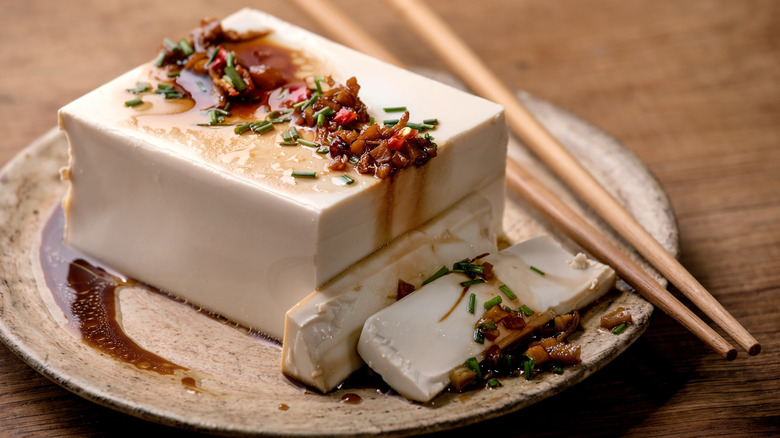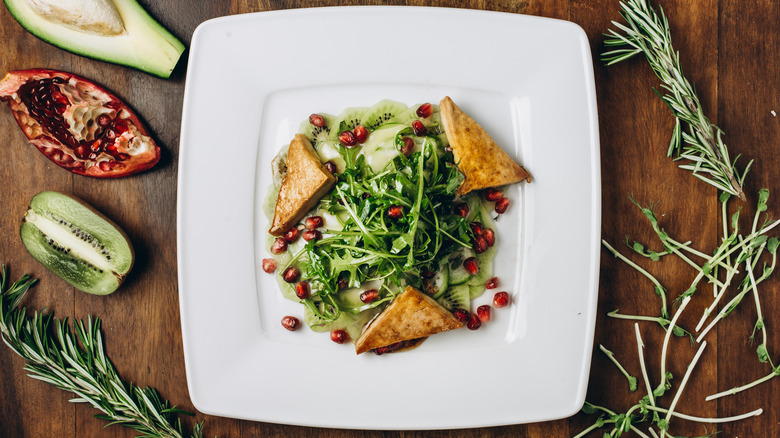How A Founding Father And A Spy Brought Tofu To The Global Stage
Tofu, while sometimes knocked for its less-than-thrilling flavor, has an undeniably intriguing history. Tofu, originally developed over 2000 years ago during the Han Dynasty in China, has ancient and supernatural origins. Many thought tofu to be the perfect food for ghosts — so soft that even the disembodied can enjoy it, writes Eater. While tofu appeared in the Western world relatively recently, the tale of its introduction to the West continues the food's fascinating history.
In fact, tofu's introduction to the West includes founding father Benjamin Franklin. In 1770, Franklin sent a letter to John Bartram, a botanist, and close friend. A few soybeans were enclosed, and his letter sang the praises of a "Chinese cheese" named "tau-fu," according to CNN. The letter reads: "My ever dear Friend: I send Chinese Garavances. Cheese [is] made of them, in China, which so excited my curiosity. Some runnings of salt (I suppose runnet) is put into water, when the meal is in it, to turn to curds. These ... are what the Tau-fu is made of" (per Soyfoods Association of America). Garavance is derived from the Spanish word for garbanzo, explains Smithsonian Magazine.
Historian Caroline Winterer explains that neither Bartram nor Franklin probably made tofu. Instead, the letter's significance rests in proving the two had an awareness "that there is tofu" (via Smithsonian Magazine). Winterer says that the letter represents the agricultural curiosity and rapid global exchange of knowledge (and seeds) abundant in the 18th century.
Tofu and the Spy
Tofu's early champion in the West is none other than spy, Li Shizeng, says CNN. Per Eater, during a mission to steal French military secrets on behalf of China's Qing Dynasty, Shizeng enrolled in an agricultural school in Montargis. There, Shizeng discovered his passion for educating his peers about tofu. He left military school and enrolled in Paris's Pasteur Institute to research tofu and soy.
Soon, he made spreading the word about tofu into a business. In 1908, Shizeng opened a tofu factory in Paris named Usine de la Caséo-Sojaïne, which translates into the Tofu Manufacturing Co. Later, he wrote books about tofu and even applied for the world's first soy milk patents in both the United Kingdon and the United States (via SoyInfo Center). Shizeng became tofu's champion in Europe. "He was the first person from East Asia to think about soy foods like a Westerner, to grasp the great potential for soy foods in the West," explain tofu experts William Shurtleff and Akiko Aoyagi.
While the factory closed during Shizeng's lifetime, he is no less influential, and his life is no less fascinating. Along with his passion for tofu, he became a vocal anarchist and vegetarian, writes Eater. He also aided Chinese students in Paris by hiring them to work at The Tofu Manufacturing Co. Li Shizeng and Benjamin Franklin, though centuries apart, are key figures in tofu's global story, one of international travel, curiosity, cultural exchange — and ghosts.

